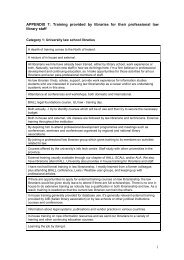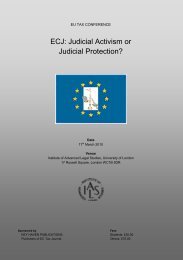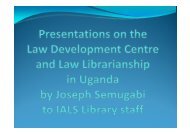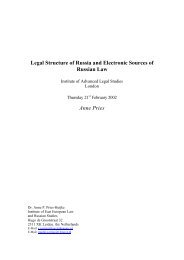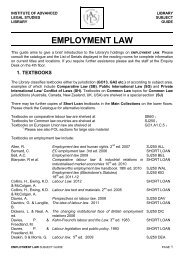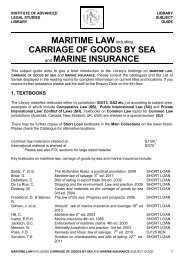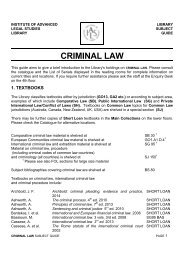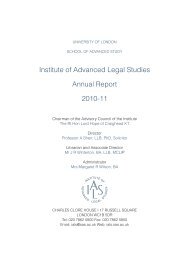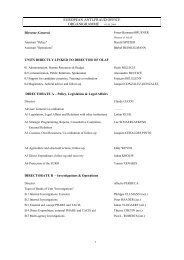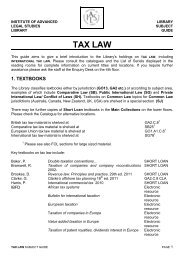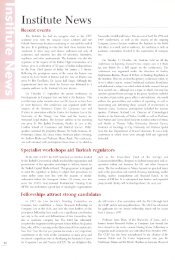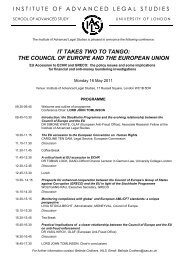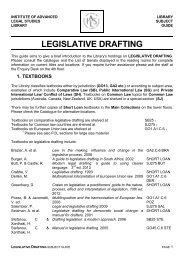a thesis - Institute of Advanced Legal Studies
a thesis - Institute of Advanced Legal Studies
a thesis - Institute of Advanced Legal Studies
You also want an ePaper? Increase the reach of your titles
YUMPU automatically turns print PDFs into web optimized ePapers that Google loves.
90 IMPLIED TRUSTS.<br />
admissible to prove that the transfer is intended to<br />
include the beneficial interest; otherwise it is admissible.<br />
The rules relating to implied trusts or trusts arising by operation<br />
<strong>of</strong> law are an artificial extension <strong>of</strong> the law <strong>of</strong> trusts, for the<br />
sake <strong>of</strong> justice and convenience, to various cases in which a legal<br />
interest in, or a control over, property has been gained in circumstances<br />
which make it inequitable for the person having that<br />
interest or control to deal with the property as beneficial owner.<br />
These trusts answer to the class <strong>of</strong> " implied contracts," or " quasicontracts<br />
" in the field <strong>of</strong> contract law. (See Encyc. Eng. Law,<br />
vol. i. 11.) In the words <strong>of</strong> Lord Justice Kay (1893, 2 Q. B. 400),<br />
the person whom it is sought to affect with the trust is not a<br />
trustee at all, although he may be liable as if he were. In the<br />
Indian Trusts Act, 1882, they are perhaps more properly termed<br />
" obligations in the nature <strong>of</strong> trusts." As has been shown in<br />
Chapter II., they are by English lawyers sometimes called "implied<br />
trusts," sometimes " constructive trusts " ; and one species is<br />
known as " resulting trusts," and sometimes the term " implied<br />
trusts " is used to denote the latter. On the whole, it seems best<br />
to term them generically " implied trusts," and to subdivide them<br />
into A., resulting trusts, and B., constructive trusts—the difference<br />
between resulting and constructive trusts being that the former<br />
are based upon the presumed intention <strong>of</strong> the parties; the latter<br />
are independent <strong>of</strong> any such intention, being raised by construction<br />
<strong>of</strong> law merely.<br />
Resulting trusts arise in four classes <strong>of</strong> cases :—<br />
1. When no trust is expressed or the trust expressed is incapable<br />
<strong>of</strong> taking effect, or is executed without exhausting the trust<br />
property.<br />
2. When property is purchased by one person, but the conveyance<br />
or transfer is made to another.<br />
3. When property is conveyed to two or more persons as joint<br />
tenants, but such persons are in equity tenants in common.<br />
4. When the purpose <strong>of</strong> a trust or transfer is illegal.<br />
With regard to the first class, the rule may be stated to be that<br />
where the owner <strong>of</strong> property transfers it, but appears not to intend



